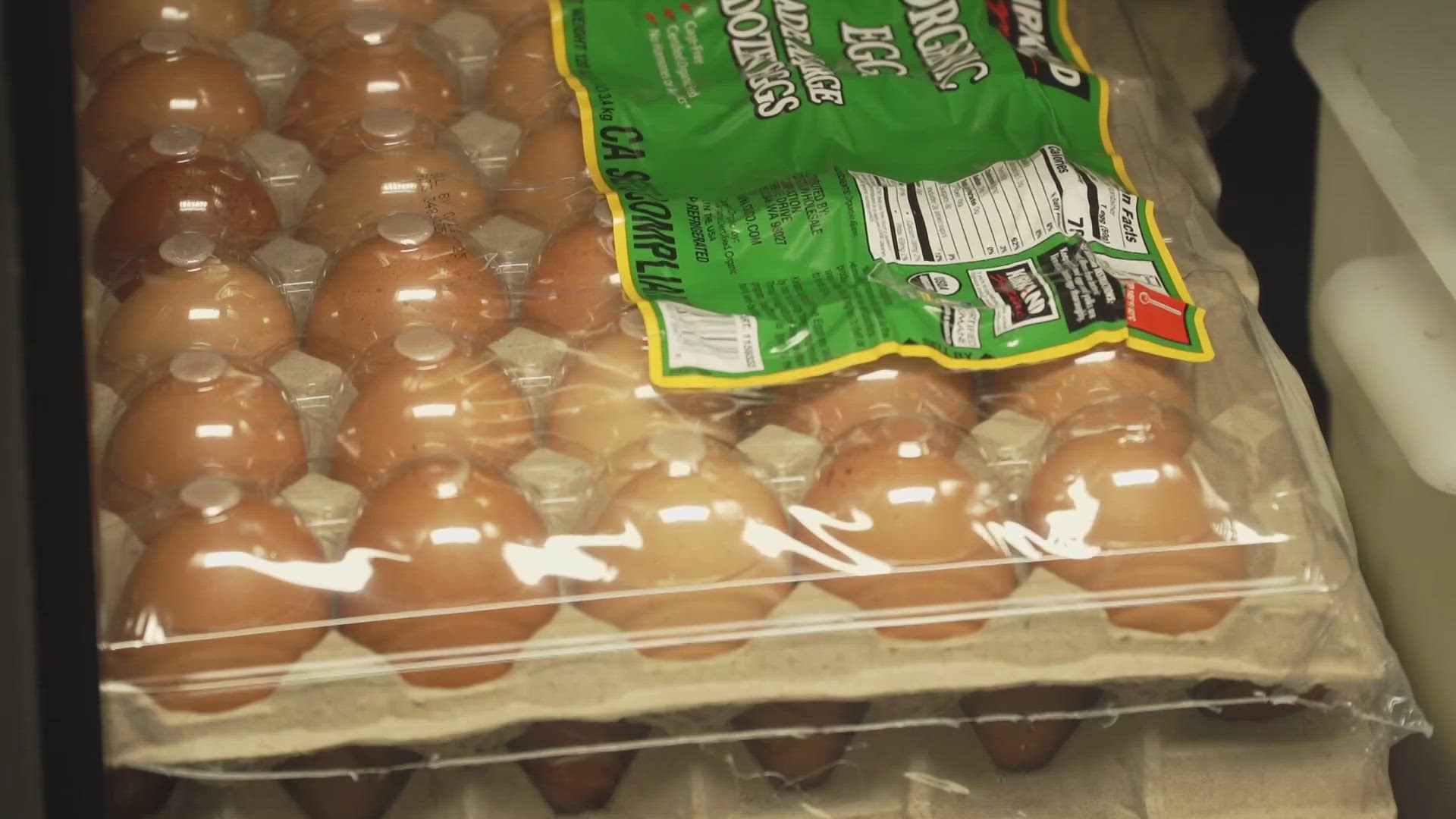SACRAMENTO, Calif. — A widespread bird flu outbreak is disrupting egg production across the country, causing shortages at grocery stores and skyrocketing prices. As the holiday season intensifies demand for eggs, many businesses and consumers are feeling the pinch.
Egg shelves in some stores have become increasingly bare, with signs warning customers about the severe shortage. Experts say the ongoing bird flu epidemic is significantly affecting egg production, leaving stores struggling to meet demand.
"Right now, it is at a tipping point," said Aziz Bellarbi-Salah, owner of Brasserie Du Monde, a restaurant in downtown Sacramento. Bellarbi-Salah, who also owns several other local establishments, expressed concern about the rising costs of eggs, which are a key ingredient in many popular dishes, such as eggs benedict, deviled eggs, and omelets.
“We have already started working hard to diversify our sourcing when it comes to the eggs that we are using,” said Bellarbi-Salah. “Costco had organic eggs, and they were 3 and change a dozen rather than $9 or $10 a dozen.”
California Gov. Gavin Newsom declared a state of emergency on Wednesday in response to the growing bird flu crisis. The declaration follows the detection of bird flu cases on farms in Southern California and aims to streamline the state's response.
"This proclamation is a targeted action to ensure government agencies have the resources and flexibility they need to respond quickly to this outbreak," Newsom said. "Building on California’s testing and monitoring system, the largest in the nation, we are committed to further protecting public health, supporting our agriculture industry, and ensuring that Californians have access to accurate, up-to-date information. While the risk to the public remains low, we will continue to take all necessary steps to prevent the spread of this virus."
Bird flu was first detected in California’s wild bird population in July 2022, later spreading to dairy cows in Central California in August 2024. The outbreak has also affected poultry farms, putting additional strain on egg production.
Maurice Pitesky, an associate professor at the UC Davis School of Veterinary Medicine, described the situation as unprecedented.
"We are three-plus years into this. This is historic what is going on," he said.
Pitesky emphasized that the focus of current efforts is more on damage control than prevention. He noted that the bird flu has affected species across six or seven continents, including wild birds, mammals, and even domesticated animals. Recently, traces of the virus have even been found in human wastewater.
The Centers for Disease Control and Prevention (CDC) has confirmed more than 60 human cases of bird flu in the U.S., with California reporting 34. While no evidence has shown the virus spreading between humans, health officials continue monitoring the situation closely.
The ongoing spread of the bird flu raises concerns about the duration of the crisis. While there is hope that the outbreak will soon subside, businesses and consumers are bracing for the potential long-term impact.
"I really hope it does not come to that," said Bellarbi-Salah.
Despite these challenges, local businesses are cautiously optimistic. Many grocery stores and restaurants in the area, who declined to comment on camera, are hoping that the worst is over and that conditions will improve soon.
WATCH MORE ON ABC10 | Researchers warn UC Davis lab staffing crisis hindering avian flu testing



















